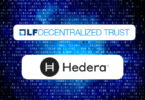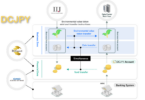Last week, the United Nations Development Programme (UNDP) unveiled open source software, the National Carbon Registry, that enables countries to manage national data and carbon credit trading by adapting it to their needs.
According to the UNDP, developing countries will need to find more than $6 trillion in financing by 2030 to support their climate goals. Hence, the clock is ticking, and an open source solution might help accelerate their progress.
“To achieve our ambitious global goals for the planet, we need to take an open and informed approach to digital technology that promotes integration and collaboration between different sectors and actors. We must also consider how we can work together to build digital public infrastructure (DPI) that is safe, sustainable, and inclusive for all,” UNDP Administrator Achim Steiner said.
Countries can integrate the registry with national measurement, reporting and verification (MRV) systems. The registry can also be linked to the World Bank project, the Climate Action Data Trust (CAD Trust). The CAD Trust operates a DLT based system aiming to aggregate data from registries around the world to prevent double counting of carbon credits.
The UNDP’s registry software does not use blockchain but uses Amazon’s blockchain-like database, QLDB, which is centralized but immutable.
Apart from developing a carbon credit system, another ambition is for the project to encourage greater cooperation. “This initiative is a valuable opportunity for countries to work together towards a shared good with potential benefits beyond the open-source registry system,” said James Grabert, Director of Mitigation Division at UNFCCC. “We look forward to engaging with the evolution of ideas and testing of approaches.”
Meanwhile, two weeks ago, the UAE announced a national registration system that will be based on a public blockchain.






